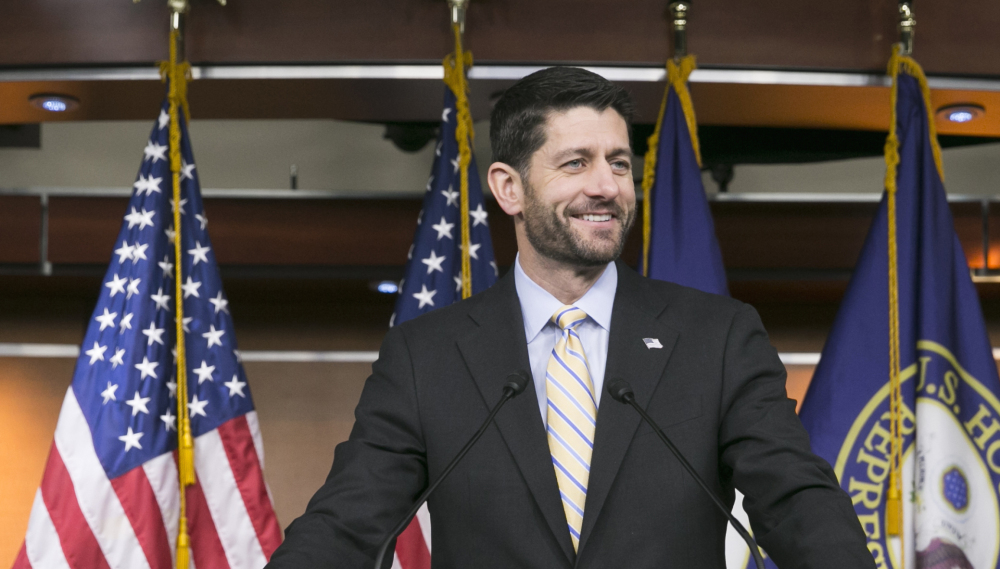WASHINGTON — Congress is poised to pass a stopgap spending bill to avert a Friday shutdown and keep the government running five more days as a standoff intensifies over controversial add-ons included in the year-end budget deal.
As Democrats resist dozens of Republican-led efforts to roll back women’s reproductive health services, halt environmental regulations to fight climate change and undo financial services reforms approved after the Great Recession, they were backed by top White House officials in private meetings this week.
Democrats are instead pushing to include their own priorities, including lifting a ban on federal gun violence research.
The Senate approved the stopgap measure Thursday, and the House is expected to pass it Friday, when funding officially runs out, buying a few more days for talks. The White House has signaled that it will sign the measure as long as it pushes the deadline back by only a few days to give lawmakers more time.
But House Speaker Paul D. Ryan, R-Wis., declined to commit to meeting the new deadline of Wednesday to pass a bill.
“We don’t want to rush legislation, especially big legislation like this omnibus appropriations,” Ryan said at a Thursday news briefing. “We’re trading offers. We’re talking to each other. We’re doing all of the things that you would do, the appropriators and the leaders, so that we can get to an agreement.”
Congress reached a budget accord earlier this fall, which set government spending levels through the remainder of the fiscal year and gave lawmakers until Friday to develop the funding bill.
But approving the details of the $1.1 trillion spending plan have fallen into a familiar pattern of brinkmanship as both parties use the must-pass measure to tack on policy priorities.
Complicating efforts is a separate battle to extend – or possibly make permanent – dozens of specialty tax breaks that are routinely approved at the end of each year.
The tax breaks cover a long list of constituent-pleasing write-offs – for teachers to deduct classroom expenses or NASCAR owners to develop race tracks – and touch industries across the nation, including film production. New this year are tax breaks for citrus and nut growers, as well as changes in the tax treatment of real estate investment trusts.
Copy the Story LinkSend questions/comments to the editors.



Success. Please wait for the page to reload. If the page does not reload within 5 seconds, please refresh the page.
Enter your email and password to access comments.
Hi, to comment on stories you must . This profile is in addition to your subscription and website login.
Already have a commenting profile? .
Invalid username/password.
Please check your email to confirm and complete your registration.
Only subscribers are eligible to post comments. Please subscribe or login first for digital access. Here’s why.
Use the form below to reset your password. When you've submitted your account email, we will send an email with a reset code.